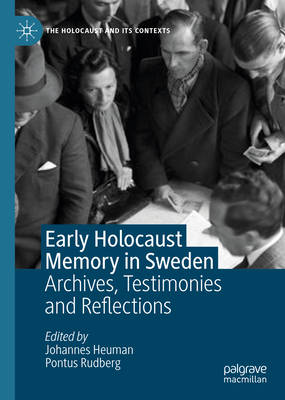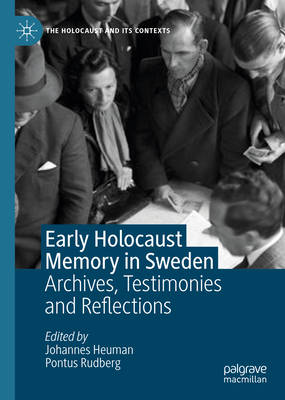
- Afhalen na 1 uur in een winkel met voorraad
- Gratis thuislevering in België vanaf € 30
- Ruim aanbod met 7 miljoen producten
- Afhalen na 1 uur in een winkel met voorraad
- Gratis thuislevering in België vanaf € 30
- Ruim aanbod met 7 miljoen producten
Zoeken
Early Holocaust Memory in Sweden
Archives, Testimonies and Reflections
€ 147,95
+ 295 punten
Omschrijving
This book investigates the memory of the Holocaust in Sweden and concentrates on early initiatives to document and disseminate information about the genocide during the late 1940s until the early 1960s. As the first collection of testimonies and efforts to acknowledge the Holocaust contributed to historical research, judicial processes, public discussion, and commemorations in the universalistic Swedish welfare state, the chapters analyse how and in what ways the memory of the Holocaust began to take shape, showing the challenges and opportunities that were faced in addressing the traumatic experiences of a minority. In Sweden, the Jewish trauma could be linked to positive rescue actions instead of disturbing politics of collaboration, suggesting that the Holocaust memory was less controversial than in several European nations following the war. This book seeks to understand how and in what ways the memory of the Holocaust began to take shape in the developing Swedish welfare state andemphasises the role of transnational Jewish networks for the developing Holocaust memory in Sweden.
Specificaties
Betrokkenen
- Uitgeverij:
Inhoud
- Aantal bladzijden:
- 334
- Taal:
- Engels
- Reeks:
Eigenschappen
- Productcode (EAN):
- 9783030555313
- Verschijningsdatum:
- 1/12/2020
- Uitvoering:
- Hardcover
- Formaat:
- Genaaid
- Afmetingen:
- 148 mm x 210 mm
- Gewicht:
- 607 g

Alleen bij Standaard Boekhandel
+ 295 punten op je klantenkaart van Standaard Boekhandel
Beoordelingen
We publiceren alleen reviews die voldoen aan de voorwaarden voor reviews. Bekijk onze voorwaarden voor reviews.










